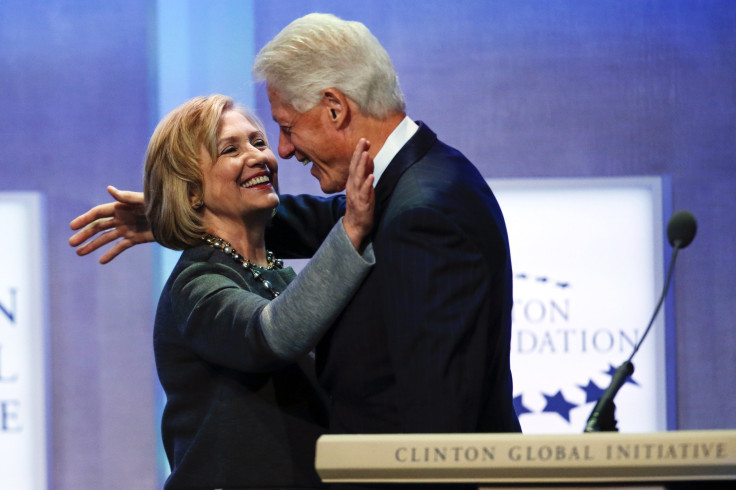Monica Lewinsky: Clinton Files, Just Released, Reveal White House Scramble To Handle Sex Scandal

Documents from former President Bill Clinton's time in office, just released Friday, show the White House scrambling to respond to the unfolding Monica Lewinsky sex scandal. There are pages of White House aides' emails about how to handle media coverage of the story, which interviews to accept and how to answer certain questions in interviews. Several email exchanges show staffers trying to track down how the story first leaked to the press.
In one 1999 document, presidential aide Sidney Blumenthal writes that Clinton said Lewinsky complained to him that the White House was calling her "a stalker," and says Clinton told him that even if he didn't have sex with her, "she'd tell people that they did anyway."
A 1998 memo argues that the president's "private mistake does NOT amount to an impeachable action."
Keith Olbermann, the former MSNBC host, wrote to Clinton to apologize for "whatever part I may have played in perpetuating this ceaseless coverage" of the Lewinsky story.
One White House memo in the documents released Friday suggests Hillary Clinton was "unhappy about leaks that painted her husband's White House in an unflattering light and wanted to know who was behind the disclosures," the Wall Street Journal reported.
Other documents bring to light the tensions in the White House over the Whitewater investigation. Presidential adviser Paul Begala advised the Clintons on how to comport themselves when questioned on the issue. "Don't show a sense of bitterness, righteous indignation or anger because it can look defensive," Begala wrote. Instead, the couple should stress that "we have nothing to hide; we are fully complying with an independent investigation."
Beyond the Lewinsky and Whitewater scandals, the documents offer a look at how Clinton's administration handled the fallout from the embassy bombings in East Africa. The 1998 bombings included a series of attacks that killed hundreds of people in Dar es Salam and Nairobi. The bombings were linked to Osama Bin Laden and Ayman al-Zawahiri, two of al Qaeda's top leaders.
Internal memos and documents show White House staffers communicating about whether and how families of the victims were to be compensated. Under law, the families received a certain amount of money, but some of them were seeking more from the U.S. government.
(Hillary Clinton faced a similar situation during her time as secretary of state when she dealt with the U.S. embassy bombing in Benghazi, Libya. The family of one CIA contractor in Benghazi is suing the agency and the State Department for damages related to Glen Doherty's death. The family is seeking $1 million for wrongful death.)
At the end of Bill Clinton's term, in 2000, with the results of the presidential election still undecided, the White House asked the Justice Department whether it could begin to work with both Al Gore and George W. Bush on the transition of power. The department said no -- because "there cannot be more than one 'President-elect."
Since February, the Clinton Library has made public close to 30,000 documents. The most recent set of documents made public include internal memos, emails and other communication about topics including the Oklahoma City bombing, Guatemalan human rights and the appointment of Hillary Clinton as head of the Health Care Task Force.
The documents released Friday were part of an eight-month-long process of making public documents that were previously sealed. The Presidential Records Act allowed the White House to keep the documents private for a 12-year period if they included classified national security information, confidential business information and trade secrets, and unwarranted invasions of personal privacy. Documents pertaining to federal appointments and confidential communications also were protected.
Some of the documents were previously requested for public release under the Freedom of Information Act, but were withheld because of their sensitive nature. Now, after the 12-year mark, those documents are accessible.
© Copyright IBTimes 2025. All rights reserved.





















